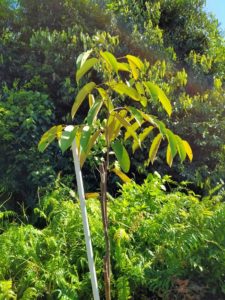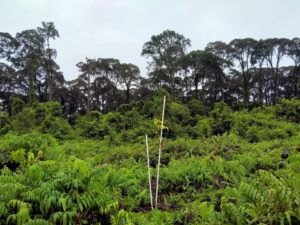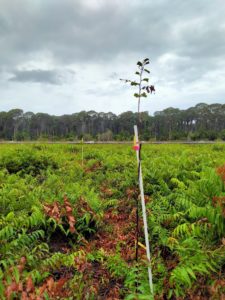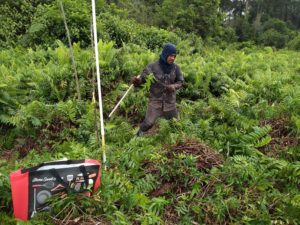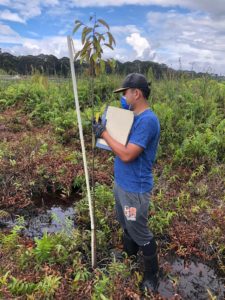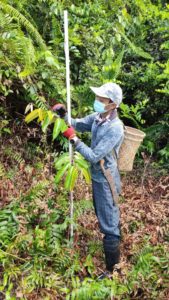To commemorate the International Day of Forests Month in March 2021, a total of 200 saplings of Shorea albida was planted at the degraded area of the Badas Forest Reserve. This was part of the collaborative effort between Institute for Biodiversity Research (IBER), Singapore-MIT Alliance for Research and Technology (SMART), Brunei Forestry Department, Brunei Shell Petroleum (BSP) and Wetlands International to initiate the first scientific and community-engagement forest rehabilitation project on one of the largest peat swamp forest reserves in Brunei.
The fundamental facet that transpired this project was the need to rehabilitate Brunei’s biggest yet degraded peat dome, the Badas Peat Dome, by planting it with one of the forests’ native, endangered and Bornean endemic tree species ─ Shorea albida. The project was also enacted to realize the country’s national climate change policy (BNCCP), under key strategy no. 2 – Forest Cover, which was to plant 500, 000 trees by the year 2035.
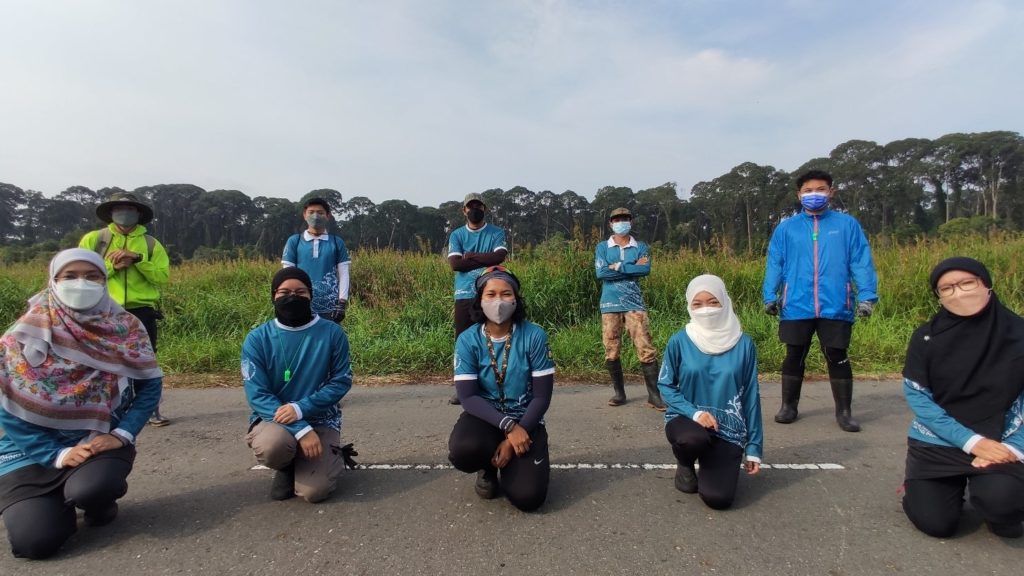
One month ago in March 2022, marked one year following the initiation of the species’ planting with multiple census events had taken place during the time, explicitly in the first, third, sixth and twelfth month after planting. The events were successful in inviting volunteers from different institutions and agencies for the first two censuses, however, due to Brunei’s second-wave COVID-19 pandemic situation that started on August 2021, the following censuses were only conducted by the research teams from IBER and SMART with strict adherence to the standard of procedure provided by the Ministry of Health (MOH), UBD and IBER.
According to the preliminary result, first cohort Shorea albida saplings that were planted initially in March 2021 showed decrease in survival rate from 52.5% during the third month to 27% in the twelfth month, while the second cohorts that were planted to replace saplings that died in the third month reduced from 47.5% to 29%. An average of 112 saplings out of 200 (56%) from both cohorts were recorded surviving after one year since the onset of the project. Another cohort of Shorea albida saplings were again introduced to the planting site to replace the dead saplings from the twelfth month. From general observation of the result, there were no differences in the effect of treatments – weeding-wise or fertilizer-wise. Interestingly, there was evidence of insect burrowing holes onto the stem of the plants that are then infested by ants.
Since the volunteering aspect of the project had to be cancelled due to the unfortunate event, a substitute plan of conducting a webinar session was considered to engage and update the public and stakeholders. There are also information about the project existing in the badastreeplanting.org website and an Instagram account – peatswamp.iber. These online outlets aimed to serve the community through education and awareness about the importance of peat swamp forests, especially ones in Brunei, and provide information about the researches and studies that are currently undergoing in UBD and IBER. Some of the future prospects for the project are to publish a peer-reviewed scientific journal as well as to conduct an eighteenth month census in September 2022.
